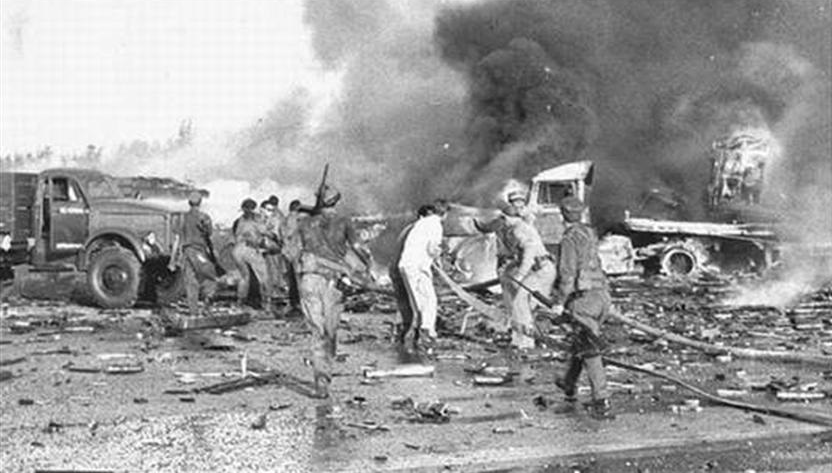Cuba today remembers the bombings by enemy planes of military airports to destroy its incipient air force and create internal confusion as a prelude to the mercenary invasion of Playa Girón, launched two days later.
At dawn on April 15 in 1961, planes camouflaged with insignia of the Revolutionary Air Force attacked the airport of Ciudad Libertad, the air base of San Antonio de los Baños, southwest of Havana, and the airfield of the eastern city of Santiago de Cuba.
With the action, the order of the then US president John Kennedy, which authorized the subsequent invasion of mercenary forces to the island, previously prepared and advised by the army of that warlike power, began to be complied with.
The incursion of eight B-26 planes that had departed from Puerto Rico and Nicaragua had the purpose of ending, on the ground, the limited Cuban aviation and guaranteeing full coverage for the invaders in their land assault plans.
The attackers also planned to deceive public opinion by creating a scenario of antagonism in the military bodies of the island, so they landed one of their ships in Miami to make it look like a desertion of Cuban pilots.
The enemy bombing killed seven people and injured another 53, mostly civilians, due to the strafing of neighborhoods surrounding Ciudad Libertad, in addition to causing material damage, without fulfilling the mission of annihilating all of the Cuban aircraft.
This scene marked, during the burial of the victims, the declaration of the socialist character of the Revolution proclaimed by its leader, Fidel Castro.


